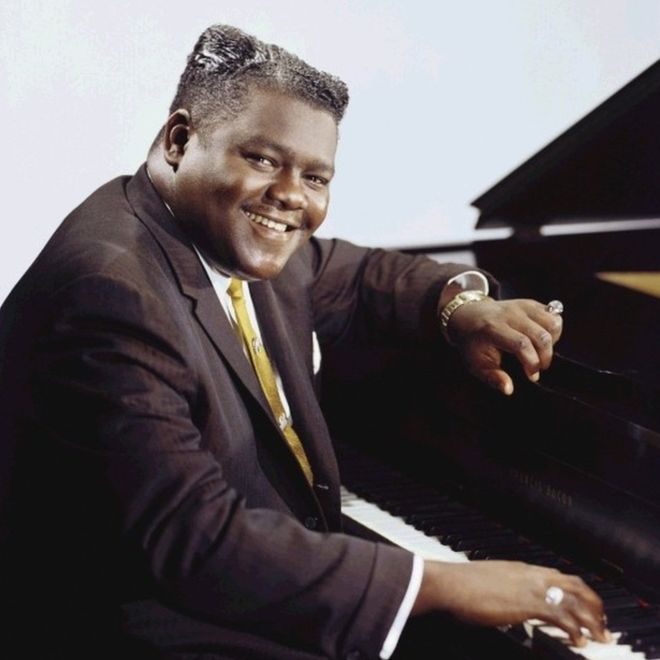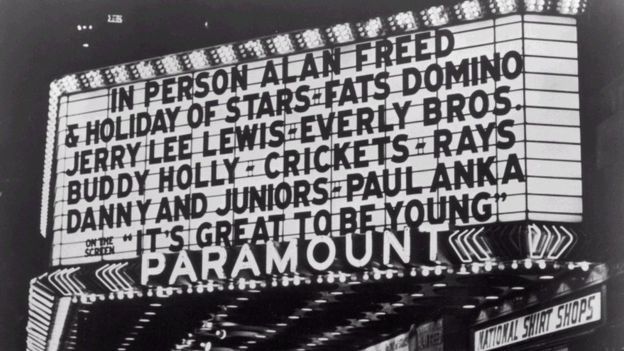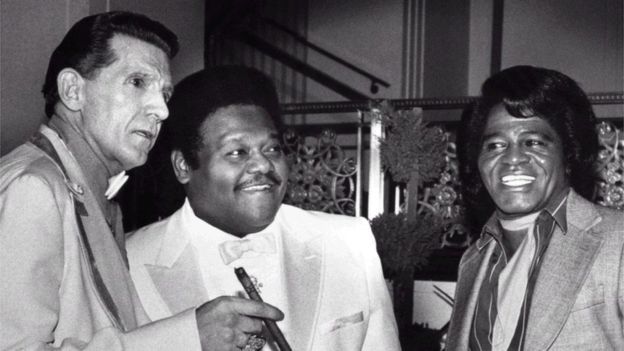Fats Domino Pioneer

Fats Domino was one of the most influential rock and roll performers of the 1950s and 60s.
He was already a star on the R&B circuit in his native New Orleans in the 1950s, but the advent of rock and roll propelled him to global popularity.
He sold more than 65 million records, more than any other rock and roller - with the exception of Elvis Presley.
His style was a major influence on several important artists, including John Lennon and Paul McCartney.
Antoine “Fats” Domino Jr was born in New Orleans on 26 February 1928, the son of a violinist. His parents were of Creole origin, and French Creole was spoken in the family. He was musically inclined from an early age and learned piano from his brother in law, the jazz banjo player, Harrison Verrett.

By the mid 50s he was one of America’s biggest stars
He was given his nickname by bandleader Bill Diamond for whom he was playing piano in honky-tonks as a teenager. He said the youngster’s technique reminded him of two other great piano players, Fats Waller and Fats Pichon.
Domino left school at the age of 14 to work in a bedspring factory by day, and play in bars by night. He was soon accompanying such New Orleans luminaries as Professor Longhair and Amos Milburn.
In the mid-1940s, he joined trumpeter Dave Bartholomew’s band, and the two co-wrote Domino’s first hit The Fat Man. Suddenly, the New Orleans sound became popular nationwide.
‘Laid-back style’
Domino had further hits with Every Night About This Time in 1951, Goin’ Home in 1952 and Going to the River in the following year.
Though Fats Domino never had the personal charisma of Presley, Jerry Lee Lewis, Little Richard or Chuck Berry, his R&B style leant itself ideally to the rhythm of rock, and many of these artists covered his material.
It was an era in which a new and exciting sound - born of black America - took over from the established white-dominated pop of Frank Sinatra, Rosemary Clooney and Perry Como.

Jerry Lee Lewis, Fats Domino & James Brown
Along with Jerry Lee Lewis and James Brown, he was one of the first inductees in the Rock and Roll Hall of Fame
But it was not until 1955 that Fats Domino finally broke into the mainstream pop world with Ain’t That a Shame.
The following year, he had his biggest hit with Blueberry Hill, a slow, bluesy sing-along - originally a Louis Armstrong tune - which became Domino’s theme song.
His popularity soon crossed the Atlantic - along with Bill Haley he was blamed for causing Teddy Boy riots in the UK in the 1950s.

Fats Domino at the 2006 New Orleans Heritage Jazz Festival
His popularity never waned
By 1960 - the year he recorded Walkin’ to New Orleans - he was rivalling Presley as one of the world’s top-selling rock artists.
Between 1955 and 1963, Fats Domino had 35 Top 40 US singles, including Whole Lotta Loving, Blue Monday and I’m in Love Again.
In 1968, interest in his music was revived after he released a version of the Beatles’ Lady Madonna.
'An interesting life’
The era of the Beatles and the Rolling Stones, of guitar bands and outrageous stage performances, was light years away from Fats Domino’s laid-back and assured style.
The father of eight children, whose first names all began with the letter A, Fats Domino continued to tour into old age - most notably with other rock 'n’ roll legends like Jerry Lee Lewis and Chuck Berry.
EMI released a definitive box-set of his recordings in 1991 and two years later came his first recorded album for 25 years, Christmas is a Special Day.

Fat’s Domino’s house in New Orleans
His New Orleans house was damaged during Hurricane Katrina
Fats Domino lived in style in New Orleans and in later years didn’t like to travel far from his native city.
However in 2005 when Hurricane Katrina hit, his house was ruined and most of his possessions, including his gold and platinum discs, were destroyed by the floods.
In 2007 he played a benefit concert in aid of the city he was so closely identified with and which remained his home.
Universally accepted as a rock and roll legend, an unassuming Fats Domino once said of himself: “I’m glad that people liked me and my music. I guess it was an interesting life. I didn’t pay much attention, and I never thought I’d be here this long.”



Comments
Post a Comment